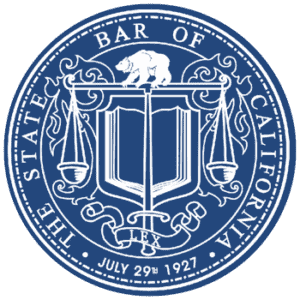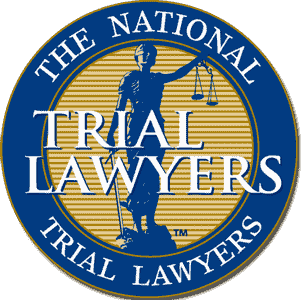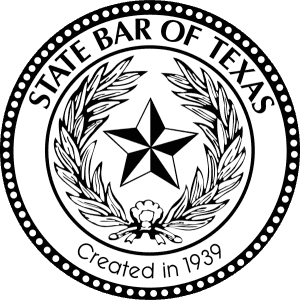My child was a passenger in someone else’s car in an accident what do I do?
Estimated Reading Time: 7.6minutes

- Take your child for medical attention immediately to determine injuries
- Obtain a copy of the police report
- Obtain a copy of the drivers insurance in whitch your child was a passenger
- Watch your child closely for any changes or signs of continuing injury and obtain the appropriate medical care.
If your child is involved in an auto accident while traveling with friends or family, your child is considered a fault free passenger and is covered by the at fault driver‘s policy. Your child is also covered by underinsured motorist coverage if available in the passenger car that he or she was in. Uninsured coverage and Underinsured coverage (referred to as UM/UIM) is coverage that covers you if the other driver is not insured or is underinsured. You should always carry UM/UIM coverage.
If your child is severely injured, your child would also be covered under your auto insurance coverage on your UM/UIM policy. Therefore, there could be three or more auto insurance policies that could cover your child as a fault free passenger if he or she is injured in an automobile accident.
When you take your child for medical attention, if available, provide your child’s health insurance information to the provider. If your child does not have medical insurance, contact an attorney immediately to assist you with medical care for your child without being sent to collections for unpaid medical bills. When your child has concluded medical care, The Law Offices of Laura Hunt can negotiate a fair settlement for your child and handle the minor’s compromise of the claim. Nevada has a mandatory procedure to follow when settling a minor’s claim. This law can be found at N.R.S. 41.200 and states as follows:
NRS 41.200 Compromise by parent or guardian of claim by minor against third person; requirements of court petition; establishment of blocked financial investment for proceeds of compromise; no fees to be charged in proceedings.
1. If an unemancipated minor has a disputed claim for money against a third person, either parent, or if the parents of the minor are living separate and apart, then the custodial parent, or if no custody award has been made, the parent with whom the minor is living, or if a general guardian or guardian of the estate of the minor has been appointed, then that guardian, has the right to compromise the claim. Such a compromise is not effective until it is approved by the district court of the county where the minor resides, or if the minor is not a resident of the State of Nevada, then by the district court of the county where the claim was incurred, upon a verified petition in writing, regularly filed with the court.
2. The petition must set forth:
(a) The name, age and residence of the minor;
(b) The facts which bring the minor within the purview of this section, including:
(1) The circumstances which make it a disputed claim for money;
(2) The name of the third person against whom the claim is made; and
(3) If the claim is the result of an accident or motor vehicle crash, the date, place and facts of the accident or motor vehicle crash;
(c) The names and residence of the parents or the legal guardian of the minor;
(d) The name and residence of the person or persons having physical custody or control of the minor;
(e) The name and residence of the petitioner and the relationship of the petitioner to the minor;
(f) The total amount of the proceeds of the proposed compromise and the apportionment of those proceeds, including the amount to be used for:
(1) Attorney’s fees and whether the attorney’s fees are fixed or contingent fees, and if the attorney’s fees are contingent fees the percentage of the proceeds to be paid as attorney’s fees;
(2) Medical expenses; and
(3) Other expenses,
Ê and whether these fees and expenses are to be deducted before or after the calculation of any contingency fee;
(g) Whether the petitioner believes the acceptance of this compromise is in the best interest of the minor; and
(h) That the petitioner has been advised and understands that acceptance of the compromise will bar the minor from seeking further relief from the third person offering the compromise.
3. If the claim involves a personal injury suffered by the minor, the petitioner must submit all relevant medical and health care records to the court at the compromise hearing. The records must include documentation of:
(a) The injury, prognosis, treatment and progress of recovery of the minor; and
(b) The amount of medical expenses incurred to date, the nature and amount of medical expenses which have been paid and by whom, any amount owing for medical expenses and an estimate of the amount of medical expenses which may be incurred in the future.
4. If the court approves the compromise of the claim of the minor, the court must direct the money to be paid to the father, mother or guardian of the minor, with or without the filing of any bond, or it must require a general guardian or guardian ad litem to be appointed and the money to be paid to the guardian or guardian ad litem, with or without a bond, as the court, in its discretion, deems to be in the best interests of the minor.
5. Upon receiving the proceeds of the compromise, the parent or guardian to whom the proceeds of the compromise are ordered to be paid, shall establish a blocked financial investment for the benefit of the minor with the proceeds of the compromise. Money may be obtained from the blocked financial investment only pursuant to subsection 6. Within 30 days after receiving the proceeds of the compromise, the parent or guardian shall file with the court proof that the blocked financial investment has been established. If the balance of the investment is more than $10,000, the parent, guardian or person in charge of managing the investment shall annually file with the court a verified report detailing the activities of the investment during the previous 12 months. If the balance of the investment is $10,000 or less, the court may order the parent, guardian or person in charge of managing the investment to file such periodic verified reports as the court deems appropriate. The court may hold a hearing on a verified report only if it deems a hearing necessary to receive an explanation of the activities of the investment.
6. The beneficiary of a block financial investment may obtain control of or money from the investment:
(a) By an order of the court which held the compromise hearing; or
(b) By certification of the court which held the compromise hearing that the beneficiary has reached the age of 18 years, at which time control of the investment must be transferred to the beneficiary or the investment must be closed and the money distributed to the beneficiary.
7. The clerk of the district court shall not charge any fee for filing a petition for leave to compromise or for placing the petition upon the calendar to be heard by the court.
8. As used in this section, the term “blocked financial investment” means a savings account established in a depository institution in this state, a certificate of deposit, a United States savings bond, a fixed or variable annuity contract, or another reliable investment that is approved by the court.
It sets out the procedure that must be followed when settling a minor’s claim. Under this statute, the parent or guardian of the child must file a minor’s compromise to allow the court to approve and review the settlement. After the court approves the agreed upon settlement, the parent or guardian must place the funds in a “blocked financial investment for the benefit of the minor until the minor is 18 years old and can access the funds”.
By contacting a lawyer immediately, your child can receive the necessary medical care without the worry of medical bills being sent to collections. At my office, we are happy to handle the health insurance company’s subrogation claim for you. Having worked for the insurance company as an attorney for 9 years before opening my boutique law firm specializing in helping injured people, I reviewed thousands of medical claims involving children. With extensive experience in the insurance field, I can help you review the coverages to maximize the money your child receives.
At the Law Offices of Laura Hunt we are here to help you and your family in the event that accidents and tragedies occur. For any of your legal needs, do not hesitate to contact our offices. The Law Offices of Laura Hunt is a boutique, family owned law firm in Henderson that specializes in helping injured people and the community with legal issues involving auto accidents, wrongful deaths, slip and falls, truck accidents, injuries to children, bicycle accidents, dog bites, and all types of injury claims. Please do not hesitate to call us anytime you have a legal question or you or a loved one has sustained an injury at 702-450-(HUNT) 4868.










